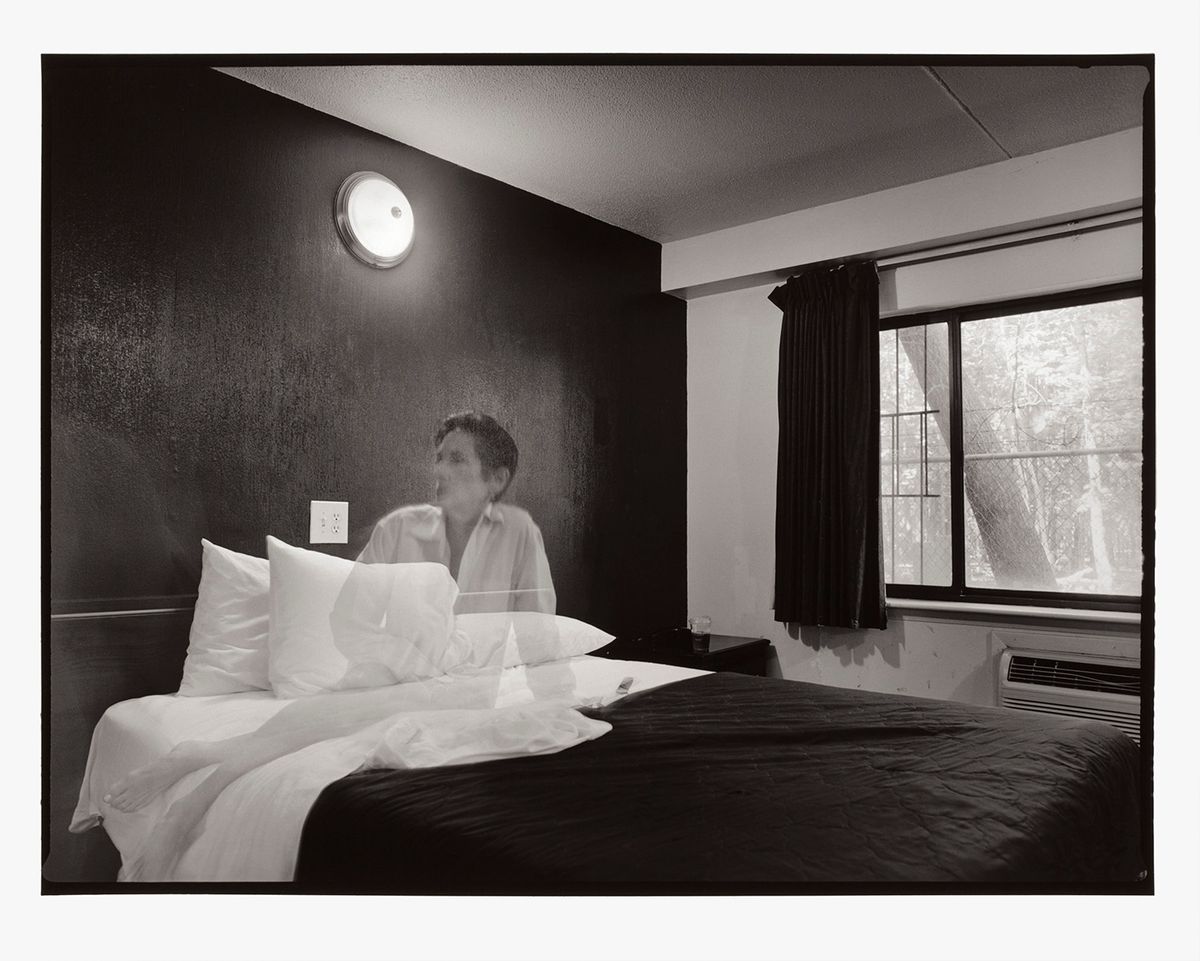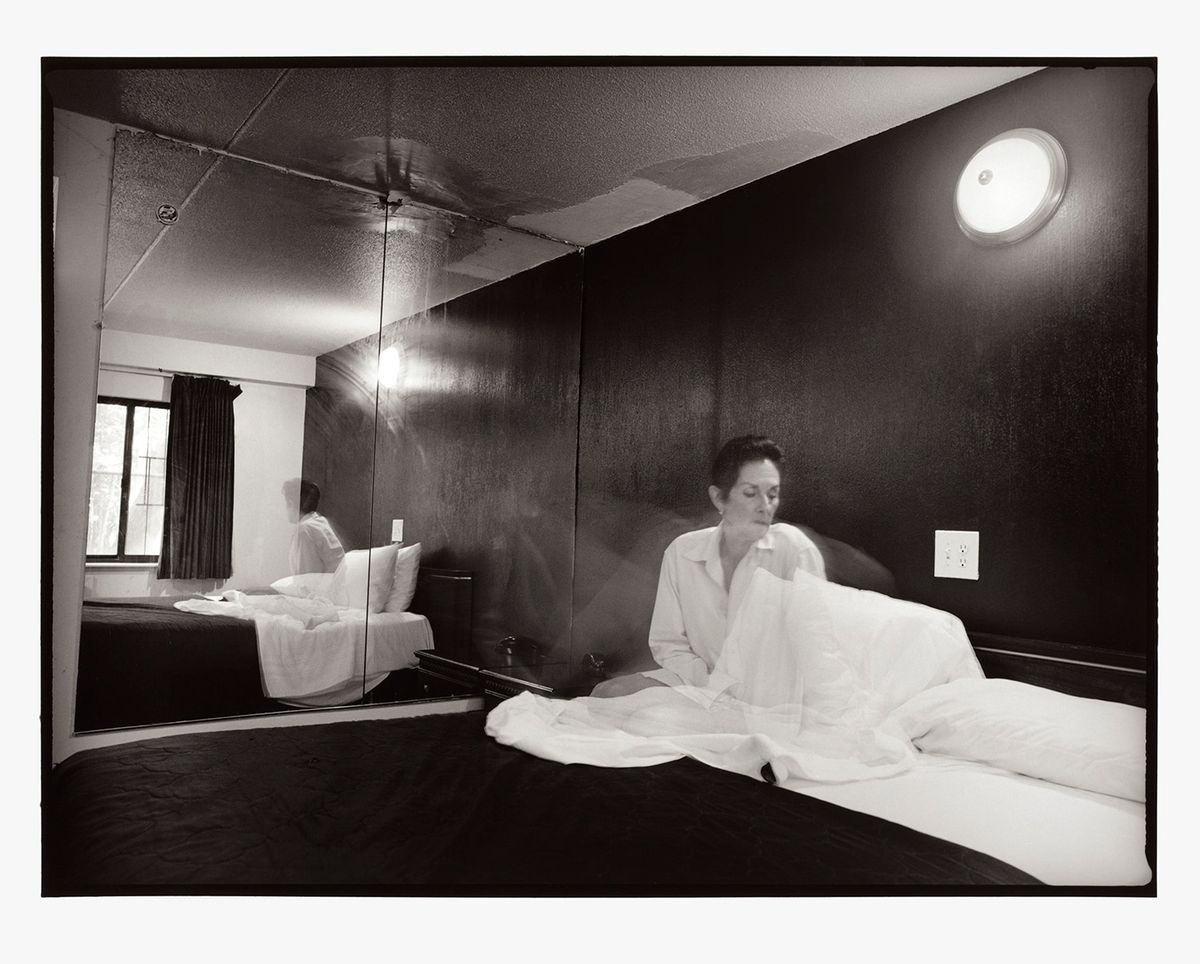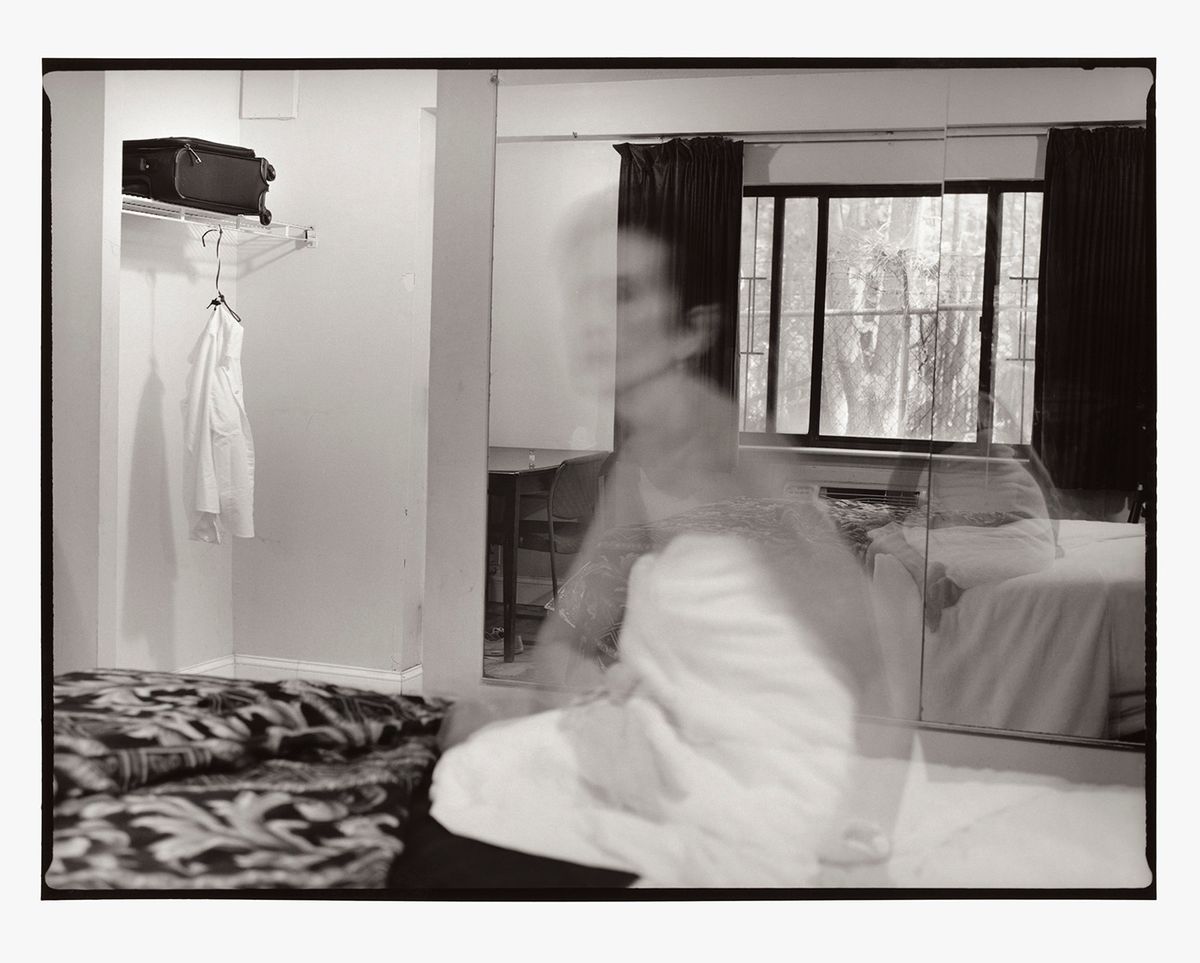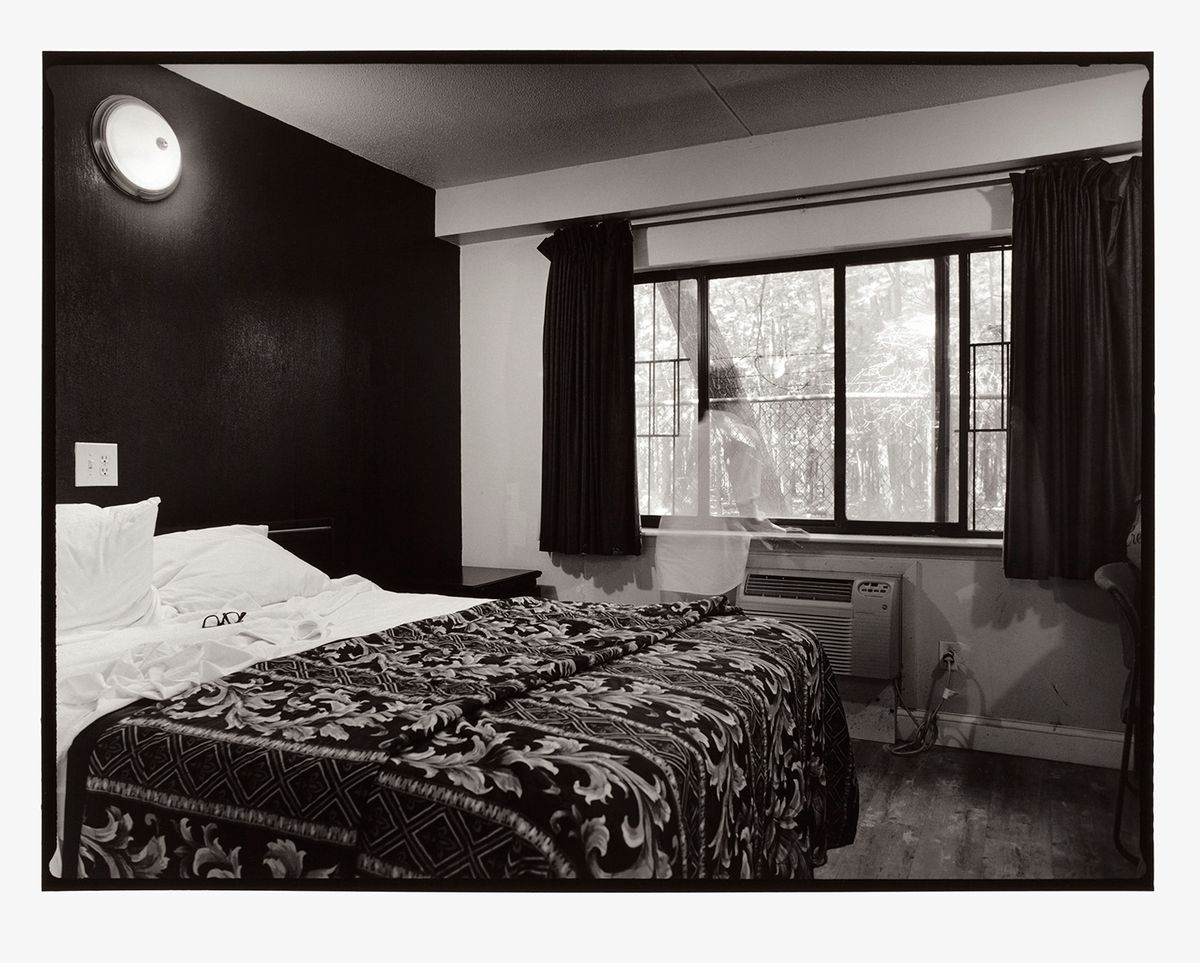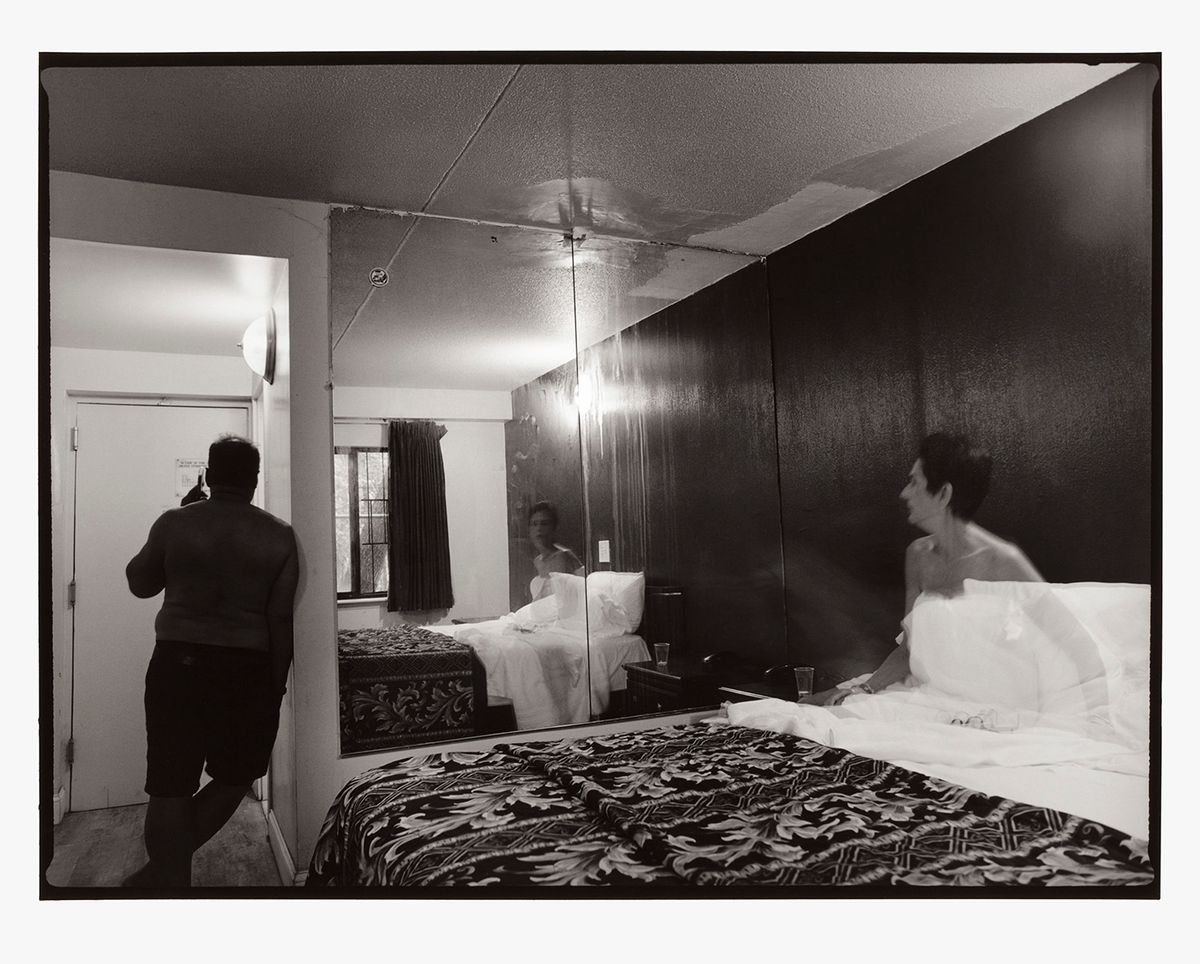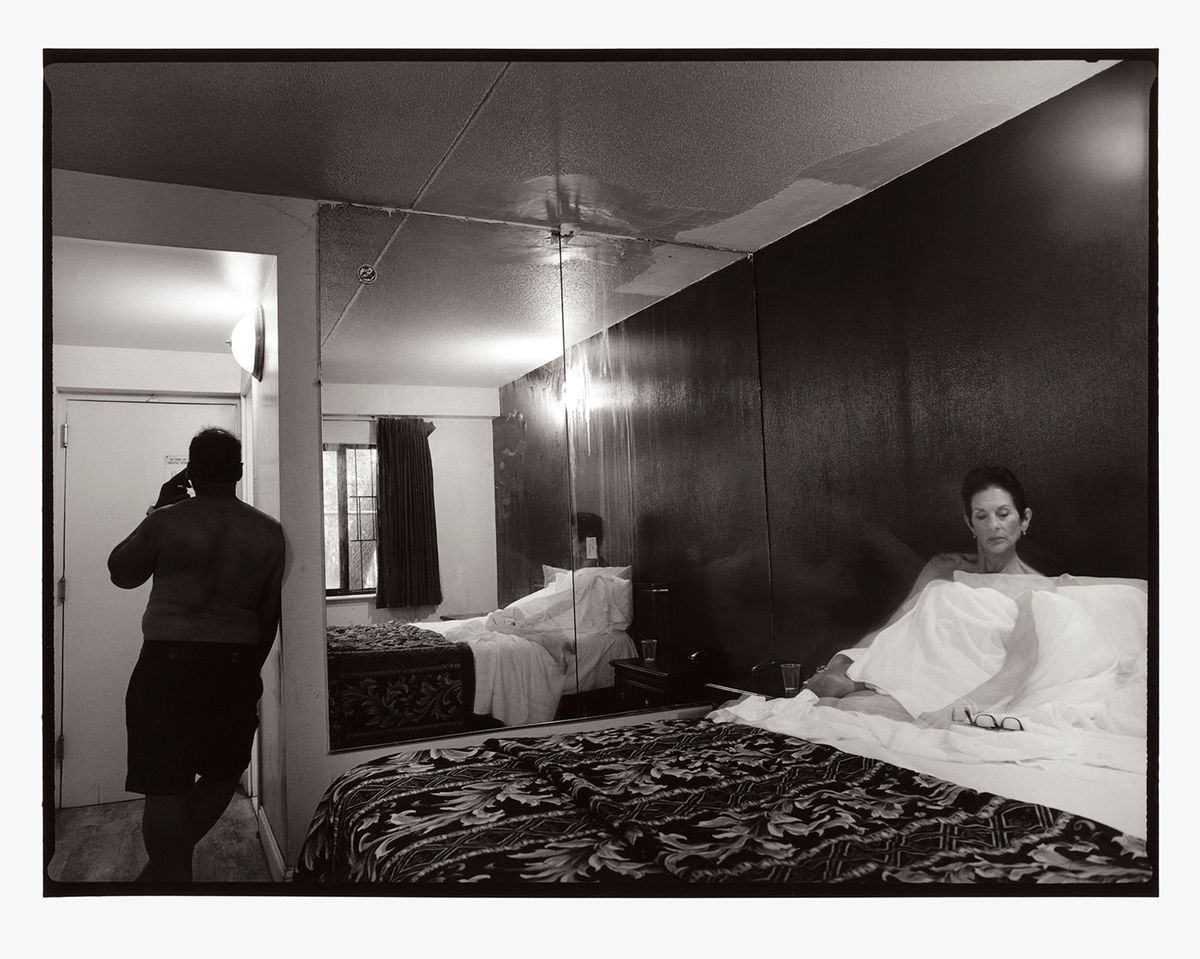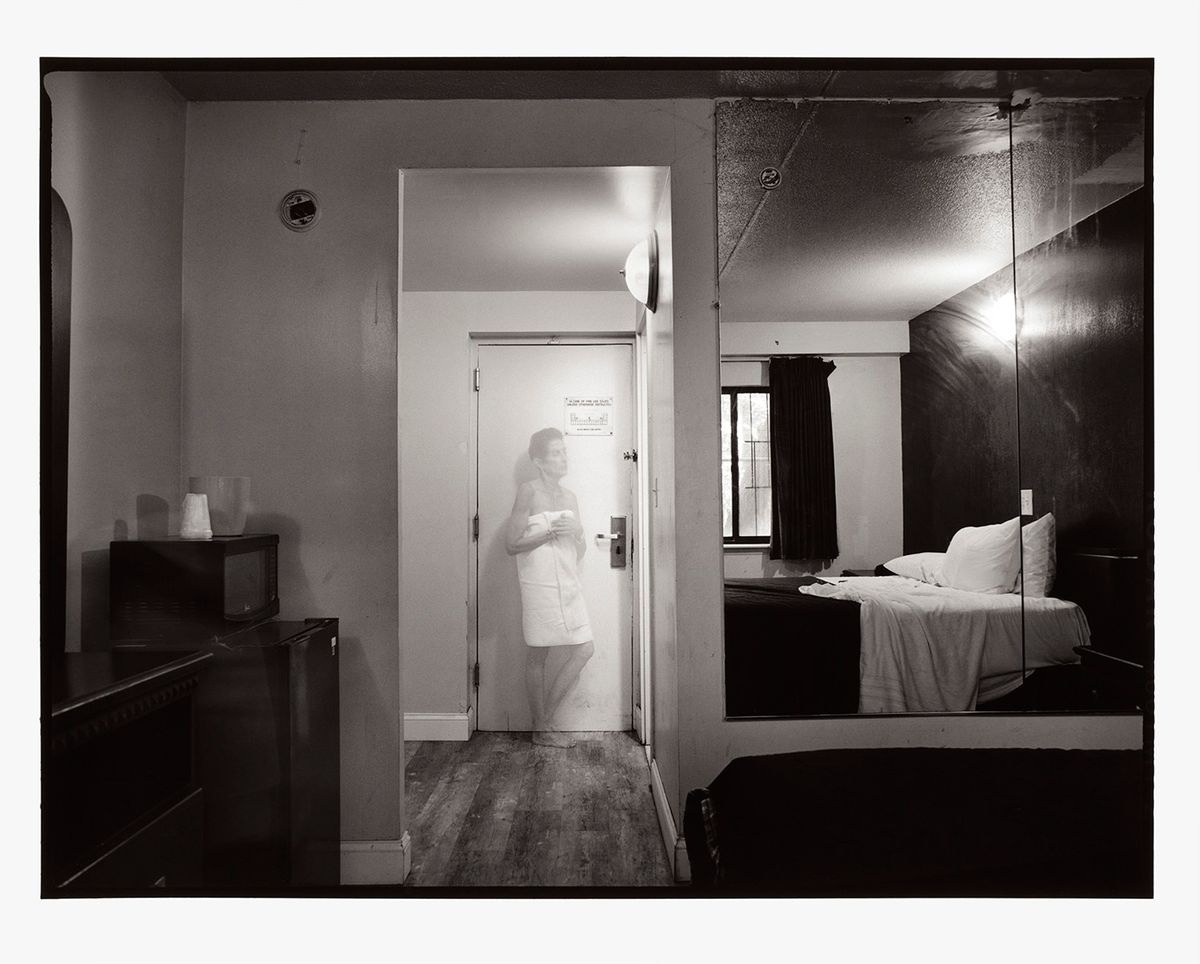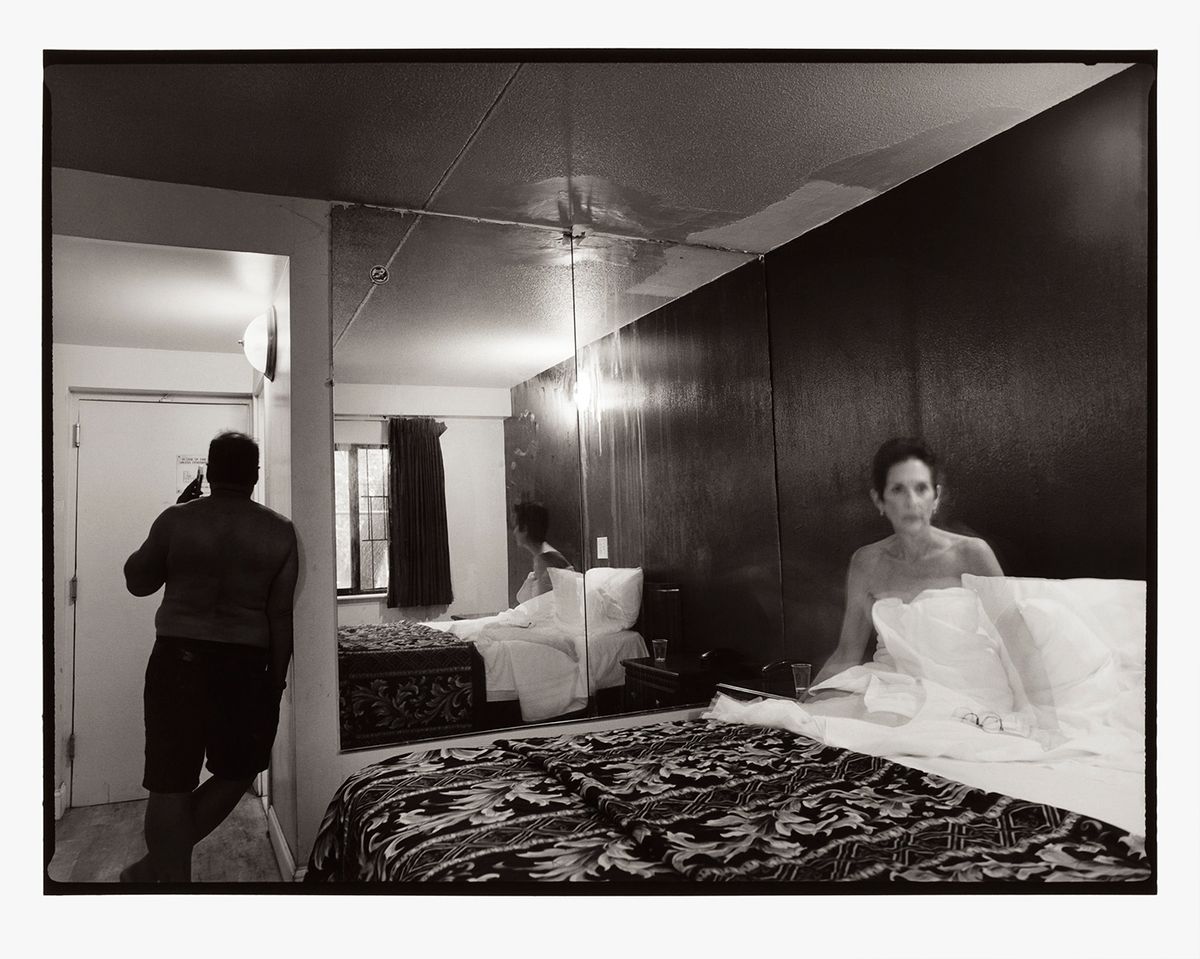DISAPPEARING SOUL: WEST SHORE MOTEL
DISAPPEARING SOUL: WEST SHORE MOTEL
West Shore Motel is the second installment of self-portraits in Jean Karotkin’s series Disappearing Soul. Once again, the photographer uses long exposure times to effect a wraithlike filminess that evokes both the psychological repercussions of isolation and the heightened sense of transparency – of being looked through rather than at – that women all too often experience as they age.
Unlike the series’ inaugural body of work, which was shot at the artist’s home during the height of the pandemic, the images in West Shore Motel were taken in a cash-only room at a roadside motor lodge and feature implicitly sexual elements. Here, the longing implied is not only for companionship, but also reckless intimacy, a desire that women “of a certain age” are traditionally denied. While the implied misbehavior subverts cultural expectations, it also transforms West Shore Motel into an unexpected homage to the sexual exploits that accompany early adulthood and continue to resonate in older age, even if the specifics grow hazy over time.

